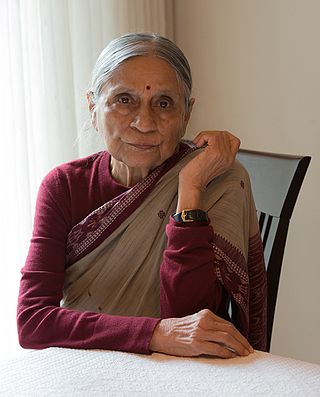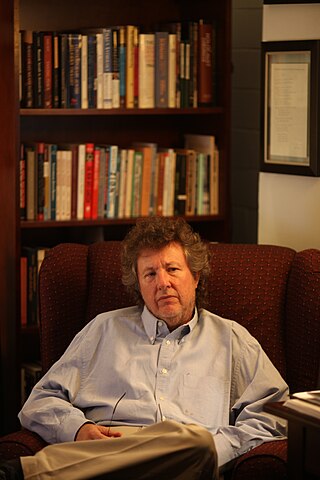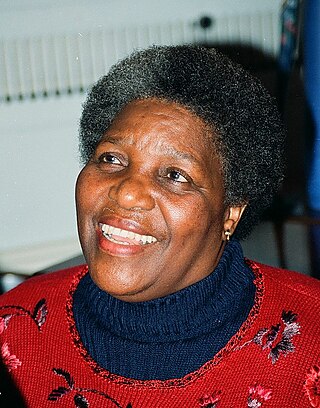Judith Ann Mayotte | |
|---|---|
| Born | Judith Ann Moberly January 25, 1937 Wichita, Kansas, United States |
| Other names | Judy |
| Spouse | Jack Mayotte (1972-75 – Deceased) |
Judith Ann Mayotte (born January 25, 1937) is an American humanitarian, author, theologian, producer, former Catholic religious sister, ethicist, and university professor.
She was born Judith Ann Moberly in Wichita, Kansas, where she grew up in the typical midwest household. During her first year in college she was stricken with polio. She then had to literally learn how to walk all over again. She soon turned to Catholicism and, against her father's wishes, became a religious sister.
For 10 years Moberly lived as a member of the Sisters of Charity of the Blessed Virgin Mary, during which time she was known as Sister Mary Vivia, B.V.M. This being a teaching order, she worked in the inner cities of Los Angeles, Phoenix, Arizona, Milwaukee and Kansas City, Missouri. "That was my introduction to people on the margins of society," she says.[ citation needed ]
The changes in the way of life of members of Catholic religious orders mandated by Second Vatican Council held by the Catholic Church during the mid-1960s led Moberly to reassess her life, and she eventually left her religious congregation. She then taught juvenile delinquents for a while, and in 1976 earned a doctorate in theology at Marquette University. [1]
Moberly soon married Jack Mayotte who was International Vice President for Square D. They were together only three years before he died of cancer in 1975.
Mayotte then spent time as a television producer. In 1978 she joined WTTW, Chicago's public broadcasting station, as the Director of Research for the News and Current Affairs Division. In 1982 she joined Turner Broadcasting as Senior Researcher and a producer for the Emmy and Peabody Award winning documentary series Portrait of America . In 1985 she won an Emmy for writing and producing the "Washington" segment of the series. In 1986 she joined the William Benton Fellowships in Broadcast Journalism at the University of Chicago as associate director and in 1988 became acting director.
It was during this time that Mayotte found herself drawn, inexplicably, she says, to refugee work. She simply realized one day that she wanted to venture overseas and work with the displaced: "It's something I can't really explain. It was just in my heart and my gut. I just didn't question it."
Mayotte applied for and received a grant from the MacArthur Foundation to write a book about refugees. In 1989, at age 51, she embarked on two years of living alone in Eritrea, Sudan, Pakistan, Thailand, and Cambodia. Her book, Disposable People? The Plight of Refugees, was published in 1992. [2]
According to an article in the April 1997 issue of Johns Hopkins Magazine, in September 1993 Mayotte traveled to southern Sudan (now the independent nation of South Sudan) on behalf of Refugees International. She was gathering information on Operation Lifeline Sudan, whose 27 organizations, including UNICEF, were trying to feed 1.5 million people a day, all of them refugees created by Sudan's three-decade civil war. In tow was a film crew from a public television series, Visionaries. While in a village named Ayod, the crew decided to film an aerial supply drop. The article describes the event:
On the videotape of the program, you see aide workers laying out a large white X in an open field, marking the target for the drop. As the cargo plane comes into view, a worker explains that the Russian pilots will come in low, north-to-south, and drop mostly bags of grain. There is footage of a worker instructing the pilots by radio, followed by another shot of the plane, this time flying in low to the ground.
Suddenly, you hear someone yell and the cameraman begins to run. For reasons that have never been explained, the plane came in not north-to-south, but east-to-west, and dropped its cargo on top of the workers. In the video, it's clear from the wildly gyrating image that the cameraman, Paul Van Ness, is running for his life. Then he stops, and on the soundtrack you hear a holler. Someone has been hit. The next image is of a woman lying on the ground in agony. It's Judith Mayotte.
Maybe, because of polio, she couldn't run as fast as her colleagues. More likely, she was simply the victim of horrible luck. A 200-pound bag of grain, dropping at an estimated 120 miles per hour (190 km/h) had struck her, pulverizing her leg. That she is still alive she credits to some good luck: in Ayod that day was a relief doctor, Bernadette Kumar, who saved her life. On the airlift out, Mayotte nearly bled to death; at one point, Kumar could no longer find a pulse. In Nairobi, a doctor, working with 25-year-old technology, rebuilt Mayotte's femur. Physicians at the Mayo Clinic, where Mayotte ended up after being evacuated from Africa, were amazed by the Kenyan's work. He had saved her upper leg, but the lower leg was a wreck. Mayo physicians presented her with what she calls a non-choice: one, possibly two years of reconstructive surgery that might not work, or amputation of her leg below the knee. 'The accident stopped me from doing what I absolutely loved doing. I miss being overseas in the camps more than I can say. But I can't run from artillery shells anymore. [3]
In 1994 Mayotte was appointed by the first Clinton Administration to the U.S. Department of State, Bureau of Population, Refugees, and Migration as a Special Adviser on refugee issues and policy. Before joining the State Department, she was Chairwoman of the Women's Refugee Commission, and served on the board of Refugees International. She was a member of the executive committee of the International Rescue Committee's board, one of the largest non-sectarian private voluntary organizations in the United States, and a Senior Fellow of the Refugee Policy Group of Washington, D.C.
Mayotte has written extensive reports, articles and editorial pieces, appeared on radio and television, and lectures on refugee and development issues. She has been called to testify as an expert witness before congressional committees concerned with the status of refugees and the direction of U.S. policy regarding the issue, and she has briefed officials of the United States government and United Nations.
Mayotte then entered into academia. She taught on the faculty of Seattle University and in Johns Hopkins University's Paul H. Nitze School of Advanced International Studies. She later went on to be a professor in the Department of Theology at Marquette and was the Women's Chair in Humanistic Studies, during which time she helped to found the South Africa Service Learning Program in that nation. [4] In 1994 for her work among refugees, Mayotte received Refugee Voices annual Mickey Leland Award and Refugees International's 1994 Award. In 1995 Mayotte received the Marymount Manhattan College Humanitarian Award and Georgetown University's Learning, Faith, and Freedom Medal. She served as a member of the June 1996 Foreign Policy faculty of the Salzburg Seminar and she was featured in one segment of the thirteen-part PBS television series and book, Visionaries, in her role of refugee advocate for Refugees International.
Mayotte currently serves on the Desmond Tutu Peace Foundation Board and Operating Committee, in connection with the Desmond Tutu Peace Centre and Leadership Academy in Cape Town, South Africa. She also serves on the board of the Visionaries Institute of Suffolk University in Massachusetts. She currently resides in Cape Town and is focusing on developing educational curriculum on peace and leadership.
Mayotte is the 2009 recipient of the Nuclear Age Peace Foundation's World Citizenship Award. [5] Mayotte was named the first Desmond Tutu Distinguished Chair in Global Understanding for the Semester at Sea in 2010. [6]
Mayotte moderated a Google Hangout between the Dalai Lama and Archbishop Desmond Tutu on October 8, 2011. [7]
I have walked in so many war zones and so many refugee situations. I hope never again to see someone freshly blown up by a land mine. What I have seen ... there has to be a way for that not to happen. [2]

Dorothy Day was an American journalist, social activist and anarchist who, after a bohemian youth, became a Catholic without abandoning her social activism. She was perhaps the best-known political radical among American Catholics.

The Sisters of Charity of the Blessed Virgin Mary, known by its initials BVM, is a Roman Catholic religious institute founded in the United States by Mother Mary Frances Clarke. Its founders were Irish Catholics. The BVM currently works in twenty-five U.S. states and three foreign countries.

Kevin Carter was a South African photojournalist and member of the Bang-Bang Club. He was the recipient in 1994 of a Pulitzer Prize for his photograph depicting the 1993 famine in Sudan; he died by suicide four months after at the age of 33. His story is depicted in the book The Bang-Bang Club, written by Greg Marinovich and João Silva and published in 2000.

Ela Ramesh Bhatt was an Indian cooperative organiser, activist and Gandhian, who founded the Self-Employed Women's Association of India (SEWA) in 1972, and served as its general secretary from 1972 to 1996. She was the chancellor of the Gujarat Vidyapith from 7 March 2015 to 19 October 2022. A lawyer by training, Bhatt was a part of the international labour, cooperative, women, and micro-finance movements and won several national and international awards, including the Ramon Magsaysay Award (1977), Right Livelihood Award (1984) for "helping home-based producers to organise for their welfare and self-respect" and the Padma Bhushan (1986).

Kevin Brian Bales is Professor of Contemporary Slavery at the University of Nottingham, co-author of the Global Slavery Index, and was a co-founder and previously president of Free the Slaves, the US sister organization of Anti-Slavery International.

Maura Clarke, MM, was an American Maryknoll Sister who served as a missionary in Nicaragua and El Salvador. She worked with the poor and refugees in Central America from 1959 until her murder in 1980. On December 2, 1980, she was beaten, raped, and murdered along with three fellow missionaries — Ita Ford, Dorothy Kazel and Jean Donovan — by members of the military of El Salvador.

Ita Ford, M.M. was an American Maryknoll Sister who served as a missionary in Bolivia, Chile and El Salvador. She worked with the poor and war refugees. On December 2, 1980, she was beaten, raped, and murdered along with three fellow missionaries — Dorothy Kazel, Maura Clarke and Jean Donovan — by members of the military of El Salvador.

Jean Marie Donovan was an American lay missionary who was beaten, raped, and murdered along with three fellow missionaries—Ita Ford, Maura Clarke and Dorothy Kazel—by members of the military of El Salvador in 1980.

Naim Stifan Ateek is a Palestinian priest in the Anglican Communion and founder of the Sabeel Ecumenical Liberation Theology Center in Jerusalem. He has been an active leader in the shaping of the Palestinian liberation theology. He was the first to articulate a Palestinian theology of liberation in his book, Justice, and only Justice, a Palestinian Theology of Liberation, published by Orbis in 1989, and based on his dissertation for his degree in theology. The book laid the foundation of a theology that addresses the conflict over Palestine and explores the political as well as the religious, biblical, and theological dimensions. A former Canon of St. George's Cathedral, Jerusalem, he lectures widely both at home and abroad. His book, A Palestinian Christian Cry for Reconciliation, was published by Orbis in 2008, followed by A Palestinian Theology of Liberation, 2017.

Desmond Mpilo Tutu was a South African Anglican bishop and theologian, known for his work as an anti-apartheid and human rights activist. He was Bishop of Johannesburg from 1985 to 1986 and then Archbishop of Cape Town from 1986 to 1996, in both cases being the first Black African to hold the position. Theologically, he sought to fuse ideas from Black theology with African theology.
Gwen Hennessey, O.S.F., is a Roman Catholic Franciscan Sister and peace activist, most widely known for her protests against the School of the Americas.

The Elders is an international non-governmental organisation of public figures noted as senior statesmen, peace activists and human rights advocates, who were brought together by Nelson Mandela in 2007. They describe themselves as "independent global leaders working together for peace, justice, human rights and a sustainable planet". The goal Mandela set for The Elders was to use their "almost 1,000 years of collective experience" to work on solutions for seemingly insurmountable problems such as climate change, HIV/AIDS, and poverty, as well as to "use their political independence to help resolve some of the world's most intractable conflicts".

Robert Ellsberg is an American religious publisher and author who is the editor-in-chief and publisher of Orbis Books, the publishing arm of Maryknoll.
Elizabeth Hirschboeck, also known as Sister Mary Mercy, was a religious sister of the Maryknoll Sisters of St. Dominic and an international humanitarian.

Marc H. Ellis was an American author, liberation theologian, and a retired university professor of Jewish Studies, professor of history and director of the Center for Jewish Studies at Baylor University. He was a visiting professor of several international universities, including the University of Innsbruck, Austria and the United Nations University for Peace, Costa Rica.

The Vulture and the Little Girl, also known as The Struggling Girl, is a photograph by Kevin Carter which first appeared in The New York Times on 26 March 1993. It is a photograph of a frail famine-stricken boy, initially believed to be a girl, who had collapsed in the foreground with a hooded vulture eyeing him from nearby. The child was reported to be attempting to reach a United Nations feeding centre about a half mile away in Ayod, Sudan, in March 1993, and to have survived the incident. The picture won the Pulitzer Prize for Feature Photography award in 1994. Carter took his own life four months after winning the prize.

Nomalizo Leah Tutu is a South African activist and the widow of Desmond Tutu.

Mary Shawn Copeland, known professionally as M. Shawn Copeland, is a retired American womanist and Black Catholic theologian, and a former religious sister. She is professor emerita of systematic theology at Boston College and is known for her work in theological anthropology, political theology, and African American Catholicism.
Janice McLaughlin was an American Catholic nun, missionary, and human rights activist. While working as the press secretary for the Catholic Commission for Justice and Peace in the 1970s, she was imprisoned by the white minority government in Rhodesia for exposing atrocities and human rights violations committed against the country's black citizens. She was placed in solitary confinement and, after intervention from the Vatican and the United States federal government, she was deported to the United States. She returned two years later to the newly established country of Zimbabwe to create an educational system, at the request of Prime Minister Robert Mugabe. In her later years she served as the president of the Maryknoll Sisters of St. Dominic in New York and worked as an anti-human trafficking activist.
Fulata Lusungu Mbano Moyo is a Malawian systematic and feminist theologian who is an advocate for gender justice. Moyo has written over twenty-eight journal articles.